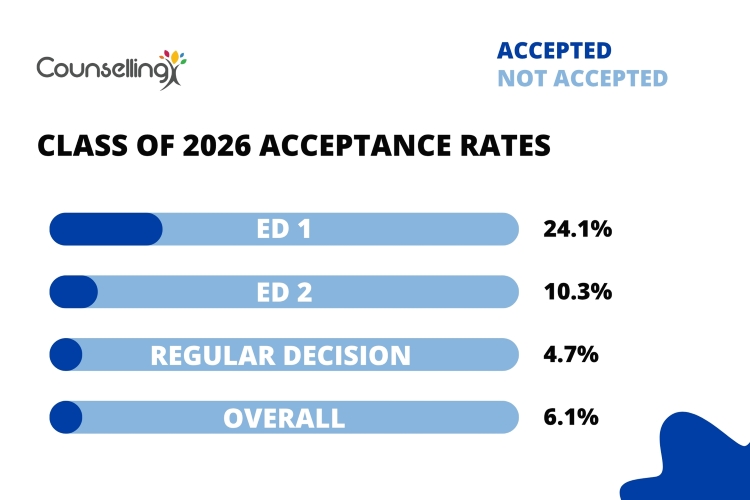For MBBS graduates in India, finishing medical school marks the beginning of exciting, albeit challenging, career choices. Many assume the only options are clinical practice or further studies, but there is much more to do.
From medical research to management roles and from practising in rural areas to international careers, MBBS graduates have a world full of possibilities before them. This guide sheds light on the diverse career paths, advanced study options, and alternative fields that Indian students can pursue after completing their MBBS.
Seek Specialisation
Specialising is one of the most desired career options after MBBS. This path enables doctors to move deeper into some regions of specialisation, like surgery, radiology, or paediatrics, and, therefore, to pursue more remunerative and satisfying employment.
Selecting an MD or MS Programme
After you have completed your MBBS, you can continue your studies. This includes applying for an MD, or Doctor of Medicine, and an MS, or Master of Surgery. These programs focus on specialised fields of medicine.
For example, you may branch into aerospace medicine, nuclear medicine, cardiology, neurology, or general surgery. Most of these postgraduate courses take about 2-3 years to complete, depending on the specialisation area.
|
MD Specialisations |
MS Specialisations |
|
Aerospace Medicine |
General Surgery |
|
Dermatology |
Orthopaedics |
|
Family Medicine |
Psychiatric |
|
Health Administration |
Pulmonary Medicine |
|
Microbiology |
Radio-Diagnosis |
|
Nuclear Medicine |
The NEET-PG exam and other Entrance Exams
In India, students must take an aptitude test, the NEET-PG, to get into MD/MS programs. This competitive exam combines medical subjects and is one of the largest medical exams in India. Every year, young people seeking their chance to join government and private universities sit for examinations. Thus, preparation and solid background knowledge are crucial at this stage.
DM/MCh
After completing the MD or MS, any doctor can specialise via a DM (Doctorate of Medicine) or MCh (Master of Chirurgiae or General Surgery). These are postgraduate and highly specialised for doctors who want to be experts in subspecialties like oncology, cardiology, or neurosurgery. Completing a postgraduate degree takes three more years, which prepares one for better jobs in central and state hospitals and research organisations in India and abroad.
Not convinced? This might change your mind: Reasons to Pursue a Graduate Degree
Beginning Your Career as a General Practitioner
In a way, clinical practice is a perfect choice for people wanting to begin work immediately after MBBS – the career concept is clear and meaningful.
Setting Up a Private Clinic
Most MBBS graduates from India prefer starting small clinics, often in small towns or cities, because medical facilities are scarce there. Running a clinic has many benefits, such as flexibility and independence, and it may become popular among the community. However, it involves an initial capital investment and can take time to establish a stable client base.
Working as a Resident in Hospitals
Various government and private hospitals and healthcare facilities seek MBBS graduates to work as resident doctors, duty doctors, or junior consultants.
These posts provide practical working opportunities in patient care services and are thus helpful for doctors who seek more preparation before getting a specialisation.
In Rural and Public Health Affairs
The healthcare sector in India needs doctors in rural and unprivileged areas; MBBS degree holders can practice in government health schemes in primary health centres or rural hospitals.
Practicing Medicine Abroad
Post MBBS, many students prepare for foreign countries, and several countries employ MBBS graduates after undergoing some tests and other processes. Here are a few tests that graduates take to continue their studies abroad
United States: USMLE and Residency Programs
To get their license to practice medicine in the U.S., the MBBS graduates must pass the USMLE, a three-step examination. After these examinations, the applicants must apply for residency, which may take 3 to 7 years.
Job prospects in the USA are increasing daily. The Association for American Medical Colleges predicted a shortage of surgeons, physicians, and other medical specialities in the coming years.
United Kingdom: PLAB and GMC Registration
To practice in the UK, Indian MBBS graduates must clear the PLAB (Professional and Linguistic Assessments Board) test. After passing the PLAB exam, the graduate can apply for registration in the General Medical Council in the UK and start practising or else continue to specialise. The UK has excellent exposure in health care and research; thus, most Indian doctors looking for international exposure prefer the UK.
Australia and Canada: AMC and MCC Exams
AMC is similar to the licensing examination in Australia, while Canada requires the MCC examination for FMG. Both countries have provisions for further education, living, and work that make them ideal working destinations for Indian doctors who want to work in a foreign country.
Also Read: MBBS in Russia
Medical Research and Academic Research
Getting a PhD or MD in Research Fields
Those who have completed an MBBS can continue to get a PhD or a research-based MD to progress in genetics, pharmacology, or public health. Both funded research positions and grants are available at renowned institutions in their home countries or at universities across the globe.
Medical Professor/ Teacher
Teaching is perfect for graduates who want to pass on their expertise and knowledge to the next generation. Typically, the position requires at least an MD or higher level of education. Still, teaching is a highly satisfying vocation, and one can always continue researching and producing publications.
Healthcare Careers outside of the clinic
Many industries recognise medical knowledge for MBBS graduates who want to remain in healthcare but do not want to practice as doctors.
Healthcare Administration and Management.
Healthcare administration facilitates hospital activities, policy-making, and service delivery by doctors. Education-wise, a majority have an MBA in Healthcare Management or Hospital Administration since the job requires business abilities. Attractive remunerations are always promised in healthcare management positions, especially in private sector hospitals/healthcare facilities.
You might be interested in: Top Universities for MBA in USA.
Medical Writing and Journalism
Medical writing is a growing profession in India now that there are so many digital platforms for health information. MBBS graduates may go into the profession of medical writing or editing, writing for medical journals, health Internet sites, or pharmaceutical companies. With knowledge of medical terminologies and excellent writing skills, doctors can play a vital role in spreading the available medical knowledge to the general public.
Jobs in Other Sectors
Many MBBS graduates are not interested in continuing their work in the medical sector. Some want a complete turnaround and opt for other sectors in search of other jobs.
Civil Services
MBBS graduates can apply directly for civil service examinations through the UPSC, which is the Union Public Service Commission. Given this, physicians are highly useful in healthcare administration, policy, and welfare agencies. This career also offers a chance to contribute to the public health system and administration.
Health Tech Industry
The health tech industry is flourishing in India. Doctors typically initiate telemedicine, mobile health applications, or even medical devices in the early stages of startup Companies. This is a difficult career path, but there is an opportunity to change the healthcare industry and find ways to transform lives across the country positively.
Medical, legal advisory
Another relatively rare but equally promising course is law, especially medical jurisprudence or health care law. MBBS graduates can provide legal consulting services on medical negligence circumstances, medical malpractice issues, healthcare regulation, and bioethics problems. This is particularly important to hospitals, legally practising firms, and government institutions.
Things to Consider When Deciding Your Course of Action After MBBS
Picking a career path after MBBS can be daunting, considering there are so many opportunities. Here are some tips to help Indian MBBS graduates find the right path:
- Explore your options, and ask yourself what branch interests you the most or what profession you see yourself in.
- Assess your financial conditions and a time frame that suits you.
- Seek advice from a counsellor or a senior.
Conclusion
The path after MBBS is vast, with innumerable jobs and tens of postgraduate degrees to pursue. The prospects for Indian MBBS graduates are bright in clinical care and practice, specialisation, research, non-clinical jobs, and careers with little or nothing to do with medicine, such as starting a business and joining the civil service.
By taking proper plans and considerations, being observant of oneself and having the ability to look for information, one can reach the optimum point in life with an appropriate path or career corresponding to one's dreams. The fantastic field of medicine is huge, and your MBBS is just the start:











